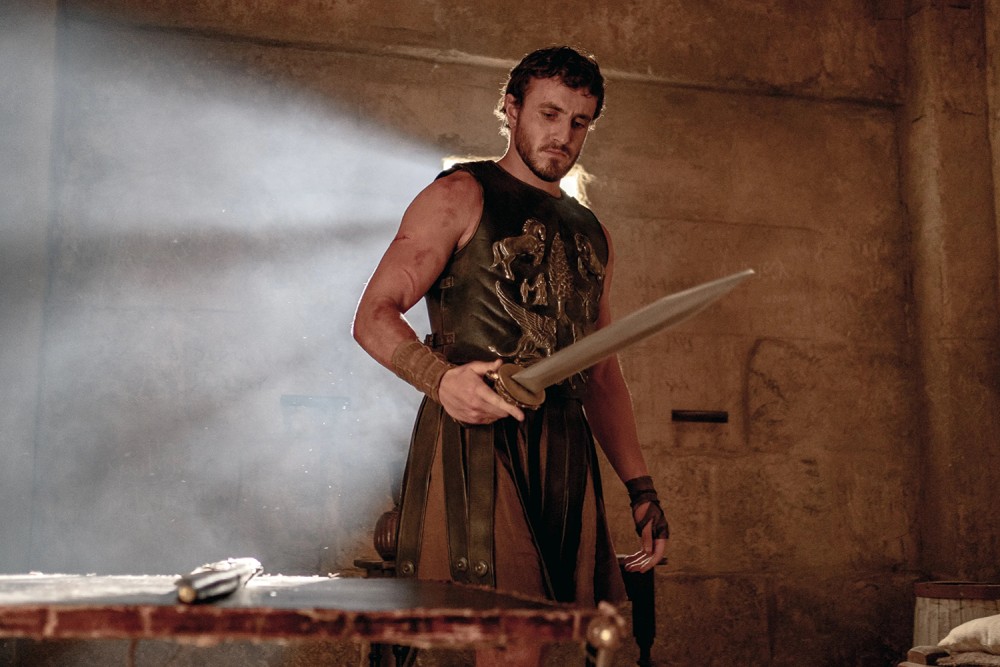Who needs Roman imperial fantasies?
After watching Gladiator II, I turned elsewhere for a more joyful model of masculinity.

Paul Mescal as Lucius in Ridley Scott’s Gladiator II (Aidan Monaghan / Paramount Pictures)
Ridley Scott’s movies are often splashy epics about near impossible feats undertaken by flawed but honorable and charismatic men. His subjects are both historical heroes (Napoleon, 2023; Robin Hood, 2010) and ordinary men who rise to extraordinary circumstances (White Squall, 1996; Black Hawk Down, 2001; The Martian, 2015). He might be forgiven, then, for basically reworking the story from his first Gladiator movie (2000) with a few variations and new characters in Gladiator II. In the first movie, he hit on a winning formula that showcased his favorite preoccupations in a decidedly Roman key: decadent despots pitted against noble republicans, ostentatious violence, self-sacrifice in the name of greater ideals. Plus, the subject matter lends itself to epic special effects, like a shark-infested naval battle in a flooded Colosseum.
The sequel follows many of the same plot points as the original: a mysterious young fighter, Lucius (Paul Mescal), is sold into slavery from the outskirts of the Roman Empire and trains as a gladiator with the hope of winning his freedom. Lucius carries a burning grudge toward Roman general Acacius (Pedro Pascal), who led the Roman army that destroyed Lucius’s home and killed his wife. Acacius, on the other hand, has grown weary of the endless war he is forced to wage at the command of Rome’s corrupt and decadent twin emperors. He also happens to be married to Lucilla (Connie Nielsen), the heroine of the first film, and they are plotting with a small group of senators to overthrow the emperors by force and restore the Republic. When Lucius shows up in the Colosseum, questions about his true identity throw these power struggles into chaos, leading to an ultimate showdown between tyranny and true heroism.
In 2023, there was a TikTok trend in which women asked their husbands and boyfriends how often they thought about the Roman Empire. The women were shocked by the answers they received: “Not that often, only once every week or two,” “At least once a day,” “There’s so much to think about.” Watching Gladiator II, which surely will add fuel to the smoldering embers in the hearts of many men, reminded me how many contradictions sit at the heart of most popular fantasies about imperial Rome.





